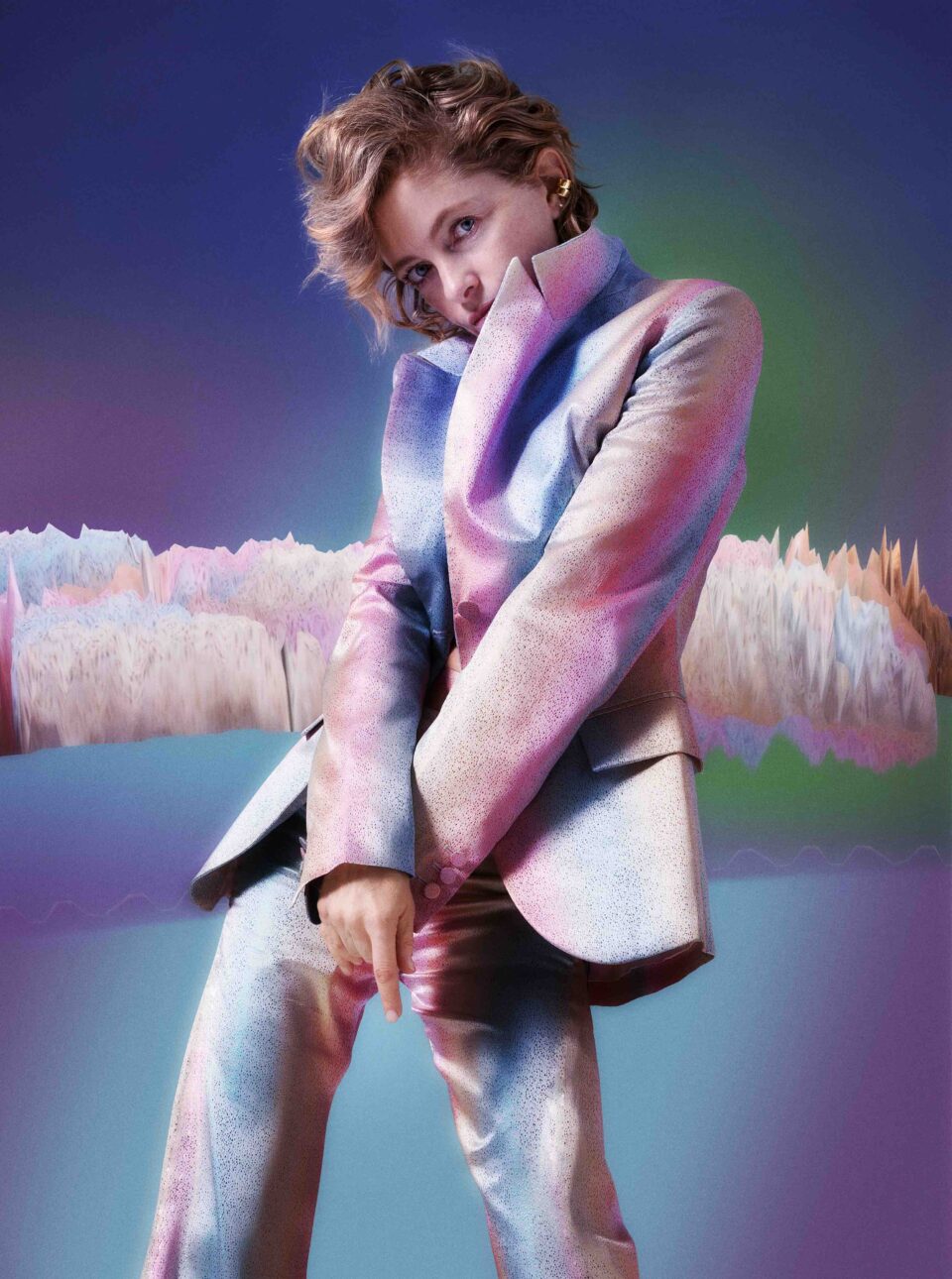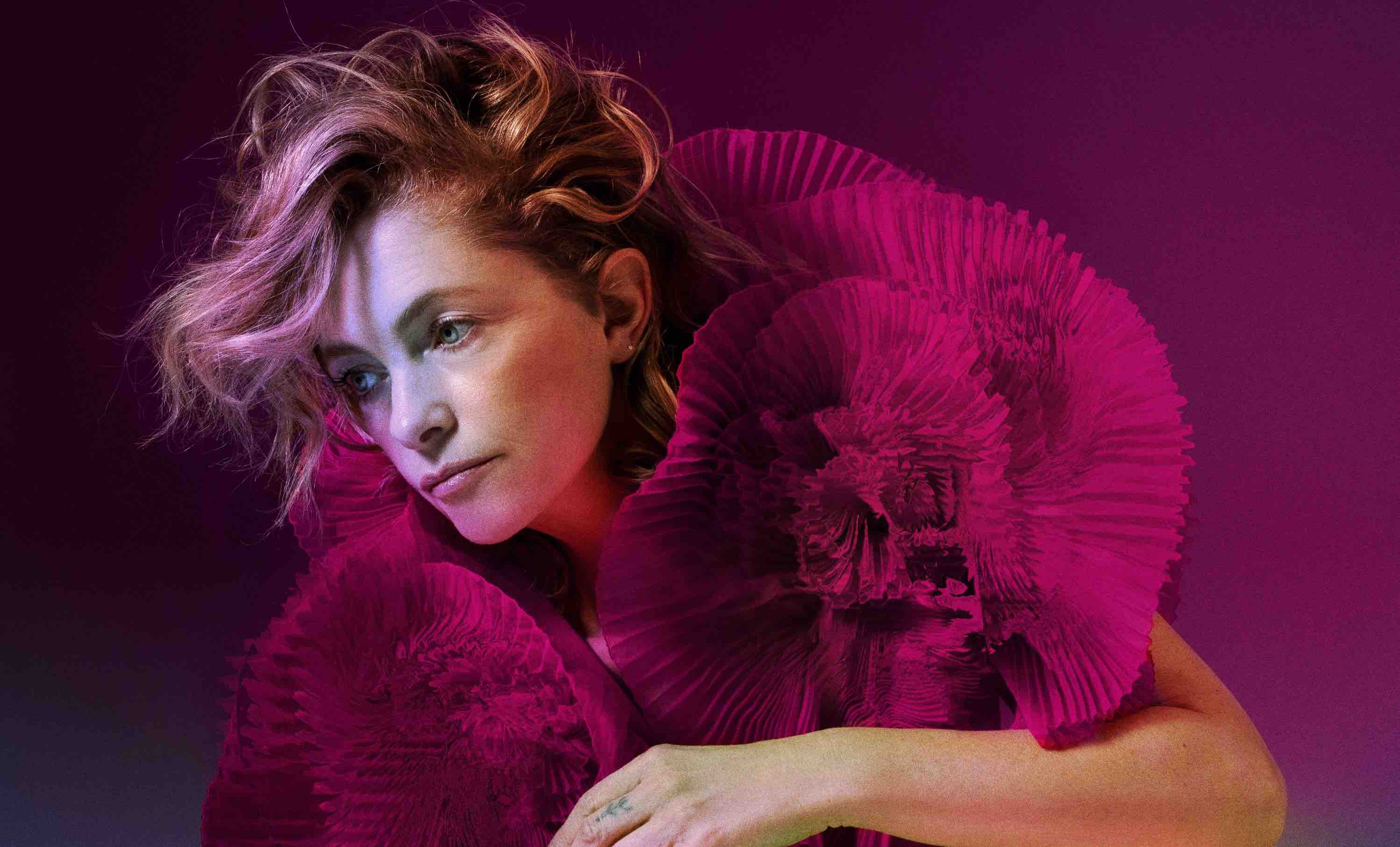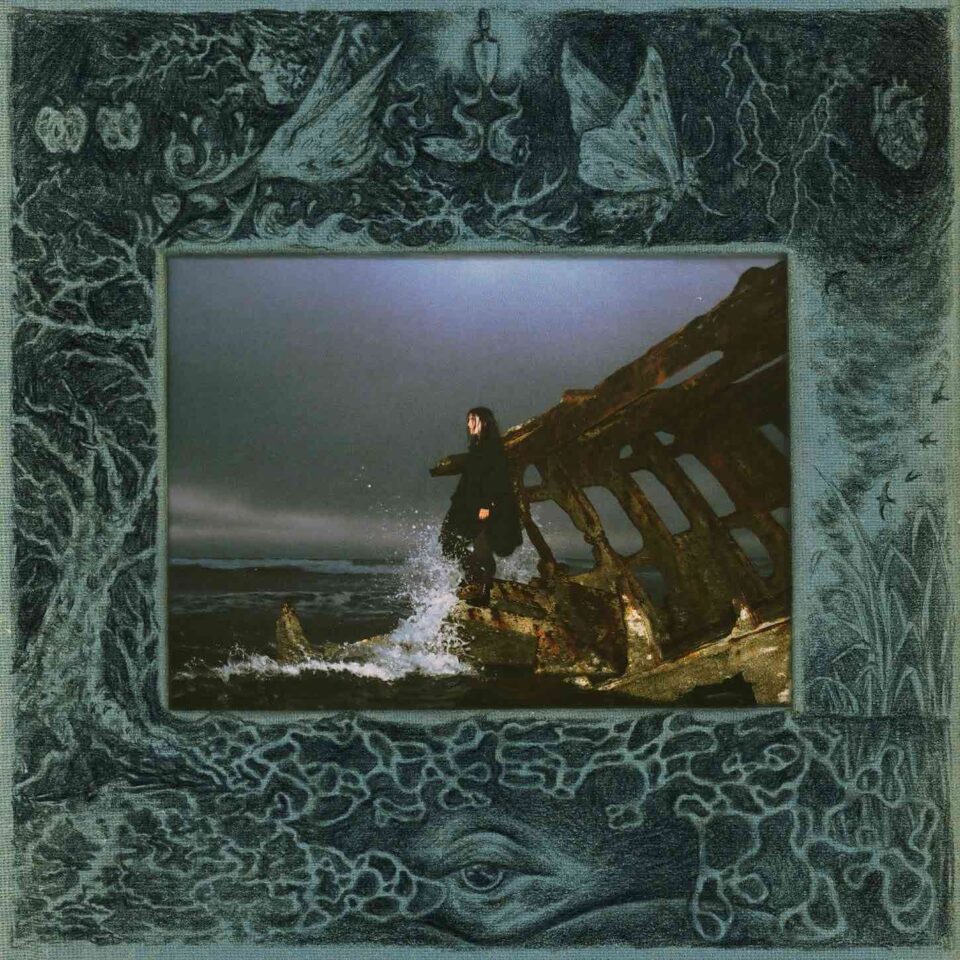It’s been almost 25 years since the English synth duo Goldfrapp released their first album, 2000’s Felt Mountain, which immediately earned them rapturous praise from music critics. With their subsequent six records, they established themselves as international electronic music stars—including in the US, where they’ve topped the dance chart three times and earned a GRAMMY nomination.
Many musicians would probably stick with something so successful, but the project’s vocalist and synth player Alison Goldfrapp is daring to strike out on her own instead. Earlier this month, she released her solo debut, The Love Invention—and the gamble paid off: it’s already charted in half a dozen countries, including cracking the Top 10 in the UK.
During a recent call from her London home, Goldfrapp explains how her mindset, creative process, and years of experience enabled her to craft this album’s effervescent, high-energy songs.
What’s it like to work as a solo artist compared to being in a band?
It’s interesting, in one way it’s no different at all, because even though I wrote all the songs with Will [Gregory], I always co-wrote on my own, and he never came on tour. In that sense, it doesn’t feel any different, really. But I guess I find it quite liberating, actually. It feels quite free.
How did you know that this was the right time to start your solo career?
Well, I don’t think you ever know if something is the right time. It was just a case of, “I’ve got to go ahead and get on with it.” I’ve been wanting to do this for a really long time, so it felt a little bit like it’s now or never.
“If there’s going to be a lyric there, then I want it to be evocative in some way, even if it’s just evocative of a particular atmosphere. It doesn’t have to be a narrative, exactly.”
How did you learn to write lyrics in such an evocative way?
Writing lyrics [is] such a weird thing. I feel like they really matter—and then they really don’t matter, as well. I’m definitely someone who’s very much led ultimately by the melody line, and the feel of the song, and the groove and the atmosphere of it. That’s the thing that really sticks with me. So in some ways, the lyrics can be just gobbledygook, almost. But I feel, at the same time, if there’s going to be a lyric there, then I want it to be evocative in some way, even if it’s just evocative of a particular atmosphere. It doesn’t have to be a narrative, exactly. And sometimes it’s really hard writing lyrics. Sometimes I really struggle with it. And then other times it just pours out.
You’ve explored a lot of different styles, but always within the electronic music realm—what makes you so interested in that style of instrumentation?
I always wanted to do very different things and express different moods, which ultimately means playing around in different genres of music. A lot of music that I really like is beat-based, rhythm-based electronic pop that uses a lot of drum machines. And of course when I first met Will, he had a lot of old synths in his studio. So yeah, they’re just fun. I love all the crazy sounds they make. There’s always something unexpected that comes from them. I love how glacial they can sound at times. I guess an acoustic instrument is much more warm. That’s lovely, too. But I love those big, fat synth sounds and glacial synth strings and things like that. I like that synthetic element. There’s something I find really interesting about that.

“I’ve been wanting to do this for a really long time, so it felt a little bit like it’s now or never.”
It’s quite a contrast with the warmth of your vocals.
Yeah, I like that contrast—I think that works well together. I’ve always been quite drawn to music that’s really quite loud and intense, and then you’ve got this voice that’s quite fragile over the top of it.
Did you take vocal lessons?
No, I haven’t. Although I had the most awful chest infection [in] January last year. I don’t think I’ve ever been so ill, actually. I was coughing for literally about two months—non-stop coughing, day and night—and it really messed up my voice. I got vocal therapy to help regain the strength in my voice, and since then I just carried it on. So I’m trying to keep that up. And a lot of the vocals I do on my new album are very breathy, and actually that requires a lot more control and more breathing techniques in order to achieve that. Plus, menopause does weird shit to your larynx, you know. Your top range isn’t as strong as when you were younger. So yeah, I have to do quite a lot of work in order to keep my voice in shape.
“An acoustic instrument is much more warm. That’s lovely, too. But I love those big, fat synth sounds and glacial synth strings and things like that. I like that synthetic element.”
Because you executive produced this album yourself, how do you stay objective so you don’t overwork songs?
I think your instinct knows when something feels right, and equally knows when something isn’t quite right, so you just carry on until you feel like you’ve got it. That’s it, really. But yeah, some people do have the tinkering disease where they can just keep noodling forever. The thing is, I just don’t believe anything’s ever perfect. It’s an ongoing process.
What do you think it is about your work that’s inspired your fans to stay loyal to you for almost 25 years now?
Gosh, I don’t know. I’ve been incredibly lucky. I’ve got a brilliant bunch of wonderful fans. It’s interesting, isn’t it, because I’ve done a completely different [style of] album each time I’ve put an album out. I definitely think there’s some fans out there who are hoping I’d do another [album that’s] more orchestral and softer, but I’m so into what I’m doing at the moment, so I’m really pleased that people have been so incredibly supportive. It’s amazing.
What was the moment that you knew that being a professional musician was actually going to work out for you?
Probably not until I was about 30. Which I guess is pretty late, isn’t it? Although I was encouraged, because Debbie Harry…I don’t think she got a record deal until she was [around the same age]. I remember when I first signed to Mute Records and was like, “Oh my God, at last, I’m going to be making an album!” I was just ecstatic about that. I thought, “Wow, OK, I’ve actually got a chance to have this as a career now.”
What do you think as you look back on the career you’ve built so far?
I feel very blessed and fortunate because I think trying to do stuff in music now is probably very hard to get started. So I feel very fortunate that I met people who wanted to do stuff with me, who believed in me. There’s always something that you think, “If I’d done that a bit differently, maybe that would have worked out better.” But you just have to be in the present, and I’m really happy about the music I’m making. FL







